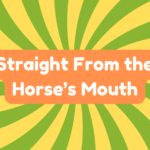The phrase "stinking rich" describes someone with enormous wealth, often carrying a negative connotation about the moral implications of such riches. It suggests not just abundance, but also questions of ethics and social disparity. Synonyms include "filthy rich" and "loaded." This language reflects society's mixed feelings toward extreme affluence and highlights the gap between the wealthy and the struggling. Understanding this phrase opens up discussions about wealth inequality and its impact on society.
Synonyms
When discussing the term "stinking rich," it is essential to contemplate synonyms that capture a similar sense of excessive wealth. This concept resonates particularly with wealthy individuals and their status of extreme affluence. Key alternatives include:
- Filthy rich
- Loaded
- Rolling in dough
Each synonym reflects not only an abundance of financial resources but also a societal perception of excess. It's important to recognize that while these terms can describe immense wealth, they often carry connotations of material excess that can provoke skepticism about the values and motivations behind such extreme affluence.
Example of Sentences
The term "stinking rich" often evokes images of individuals basking in lavish lifestyles, but it also raises questions about the implications of such extreme wealth. Consider these example sentences that illustrate various wealth expressions:
- "After winning the lottery, she became stinking rich overnight."
- "His stinking rich parents bought him a sports car for his birthday."
- "In the world of finance, being stinking rich is just the tip of the iceberg."
Such expressions remind us that while wealth can afford luxury, it also may lead to social disparity and ethical dilemmas, challenging society's morals and priorities regarding affluence.
Origin
An exploration of the phrase "stinking rich" reveals a fascinating yet often misunderstood origin. Myths erroneously link it to Victorian mausoleums, suggesting that the decomposing bodies of the wealthy emitted a foul odor, hence giving rise to the term. However, the actual origin is more straightforward; it serves as an intensifier, akin to phrases like "drop-dead gorgeous." First recorded in a 1925 issue of The Independent from Montana, it emerged in the 20th century, far removed from its supposed Victorian roots. The allure of wealth has shaped its evolution, despite the misleading stories surrounding its inception.
Collocations
Exploring the collocations of the phrase "stinking rich" reveals how it pairs with other words to enhance its meaning and impact. These collocations create vivid images associated with a wealthy lifestyle and the often exaggerated nature of extreme wealth:
- Stinking rich – denotes an overwhelming abundance of money.
- Filthy rich – emphasizes a morally ambiguous wealth.
- Loaded with cash – suggests active, accessible funds.
Such collocations with money present a lifestyle fraught with perceptions of greed and excess. The absorption of these phrases into everyday language invites both admiration and skepticism, highlighting the complex societal attitudes towards wealth and its consequences.
How to Use in Everyday Language
Using the phrase "stinking rich" in everyday conversation can add flair and expressiveness, particularly when discussing wealth or financial success. Its colorful imagery conveys the idea of a rich lifestyle, evoking both admiration and a hint of envy. However, one should be mindful of context, as it may come across as flippant in serious discussions about financial freedom. Employing the phrase can make conversations lively, yet it also risks trivializing complex economic realities. In maneuvering such language, speakers should strike a balance, ensuring their playful expressions don't undermine the importance of genuine conversations about wealth and its implications.
Why Is It Still Relevant Today?
The phrase "stinking rich" remains relevant in contemporary discussions about wealth due to its vivid imagery and cultural resonance. It aptly captures society's perceptions of wealth inequality, a pressing issue today. As the gap between rich and poor widens, this phrase critiques excessive wealth, highlighting moral implications. Cultural perceptions are shaped by how wealth is depicted, often sparking intense discussions about fairness and privilege. In the modern context, "stinking rich" serves as a reminder of the disconnect between lavish lifestyles and the struggles of the less fortunate. Consequently, it continues to evoke strong emotions and conversations surrounding economic disparities.







